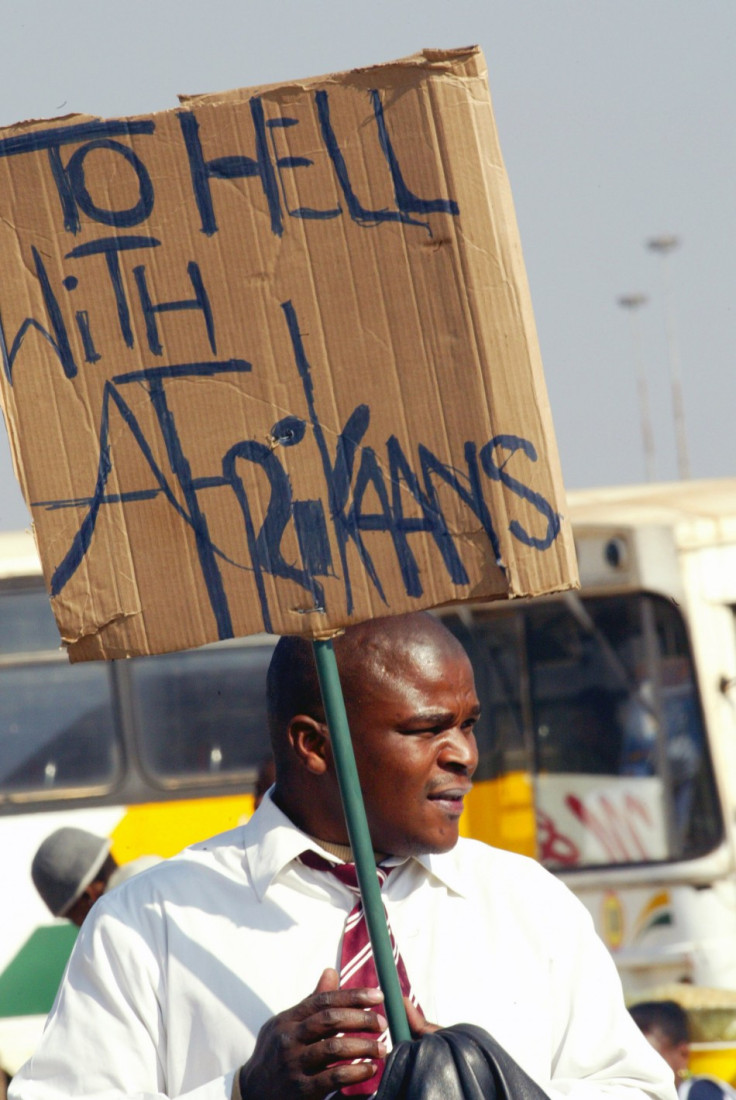My South African Adventure: Minding my Language with Afrikaans [BLOG]
It's only good manners to learn the language of your adopted home country but that's easier said than done

I truly never thought I'd find myself learning lists of vocabulary ever again.
After years spent studying French and German to degree level, followed by a couple of months of Spanish at night classes with the aim of returning to South America to teach English (I fell in love with Peru but ended up working as a journalist in California for a couple of years instead), I thought I'd had my fill of such linguistic delights.
But no. Here I am again, wading through loads of foreign words, this time Afrikaans in origin, and trying to imprint them into my befuddled mind.
The Job's comforters among us always warn that languages will inevitably be harder to learn as you get older because your brain gets less porous. But, to be honest, I haven't really found that - so far anyway - although, it must be said, I've only had one lesson.
The thing with Afrikaans is that it's a phonetic language so once you know the sounds, you're okay. There are very few exceptions and so you just follow the rules. But, boy, some of those sounds are tough: a 'g' at the start or in the middle of a word sounds like the 'ch' sound in loch. Try it. It's a veritable nightmare for an English speaker.
Afrikaans speakers have also described their esteemed mother tongue, perhaps somewhat harshly, as a grammatically dumbed-down version of Dutch, of which it's a daughter language, with lots of borrowed words from Malay, Portuguese, Bantu and Xhosa thrown in for good historical measure - although I'm not sure everyone would care for that depiction.
According to the 2011 census, out of 11 official home languages, Afrikaans is South Africa's third most commonly spoken one and is used by 13.5% of the population, which equates to about seven million people or so. Only Zulu and Xhosa are spoken more widely - at 22.7% and 16% respectively.
English, meanwhile, ranks a mere fourth on the list, at 9.6%, although it still remains the predominant language of the media and is often used as the lingua franca, in the Cape region anyway as most people are at least bilingual.
A thriving language
Nonetheless, fears that Afrikaans is under threat and in danger of decline don't appear to be borne out by the facts. Although in a post-apartheid South Africa, it may have been demoted from being the sole official language, a resurgence in Afrikaans pop music since the 1990s, undoubtedly helped by events such as the KKNK, has reinvigorated interest amongst the country's youth, who don't necessarily look on it in the same politicised way as their parents anyway.
And after all, Afrikaans is not only spoken as the native language of 61% of white people in the country, but also by 76% of those described as Coloured, or people of mixed race, making it the dominant tongue of the Western Cape at least.
And there are still plenty of Afrikaans newspapers, radio stations and books around, along with a respectable number of subtitled films and even the odd TV soap opera.
In fact, I've been instructed by my tutor to watch one of them, 7de Laan (Seventh Avenue), at 6.30pm each day, Monday to Friday in a bid to get my ear more attuned. It's got almost cult status over here apparently but, thankfully, comes with subtitles.
As for why I decided to learn Afrikaans in the first place, I guess that coming from a linguistic background, I always find it embarrassing when people, our friends from the Northern Suburbs included, have to break into English to accommodate us, particularly when we're with a group of Afrikaans-speakers. It just seems rude somehow.
And having taken the decision to move to an Afrikaner town in an Afrikaner area, it seems that it's the least I can do. Being a German-speaker, albeit in the dim and distance days of my youth, I'm told that Afrikaans shouldn't prove too difficult. Or that's the theory anyway.
Being a lover of language, I also have a few favourite phrases among the South African version of English too. Top of my list is "waitron", which is their non-gender-specific designation for waiters and waitresses, followed by "robot" for traffic lights.
I also love "soapies" (soap operas) and "blankies" (blankets). They're cute.
Cath Everett is a resting journalist who has written about business, technology and HR issues for over 20 years. She recently moved from the UK to South Africa with her husband.
READ:
My South African Adventure: Forgetting Britain in the Big Freeze [BLOG]
My South African Adventure: Keep 'Em Safe Drug Abuse Campaign [BLOG]
My South African Adventure: Grape Expectations in Land of Wine [BLOG]
My South African Adventure: Over-the-Top Security is Safe as Houses [BLOG]
My South African Adventure: Kraal Gallery, 102faces.com and 2people1life.com Seize the Day [BLOG]
My South African Adventure: Oscar Pistorius is the Talk of the Braai [BLOG]
My South African Adventure: Technology-Starved Amish Lifestyle is not for Me [BLOG]
© Copyright IBTimes 2025. All rights reserved.






















